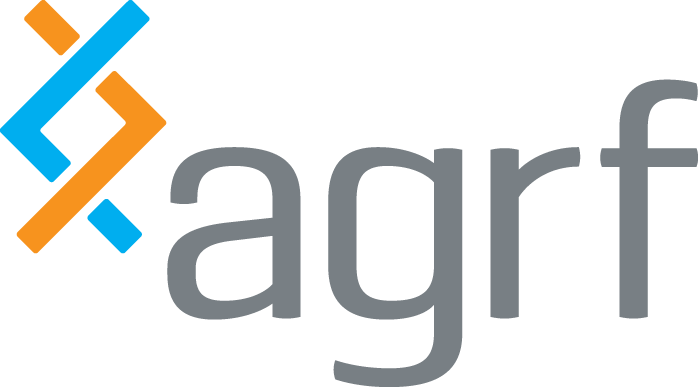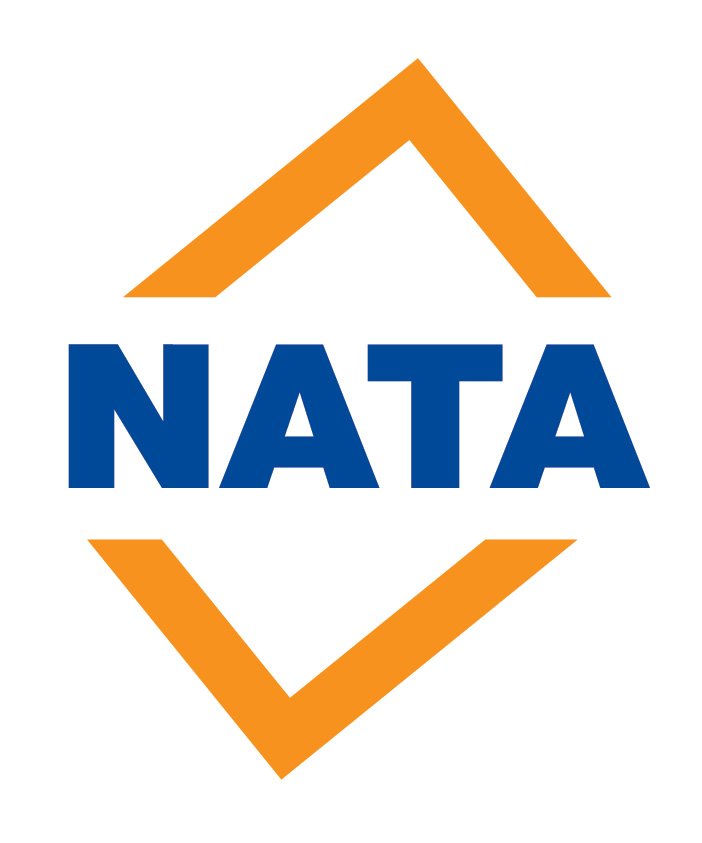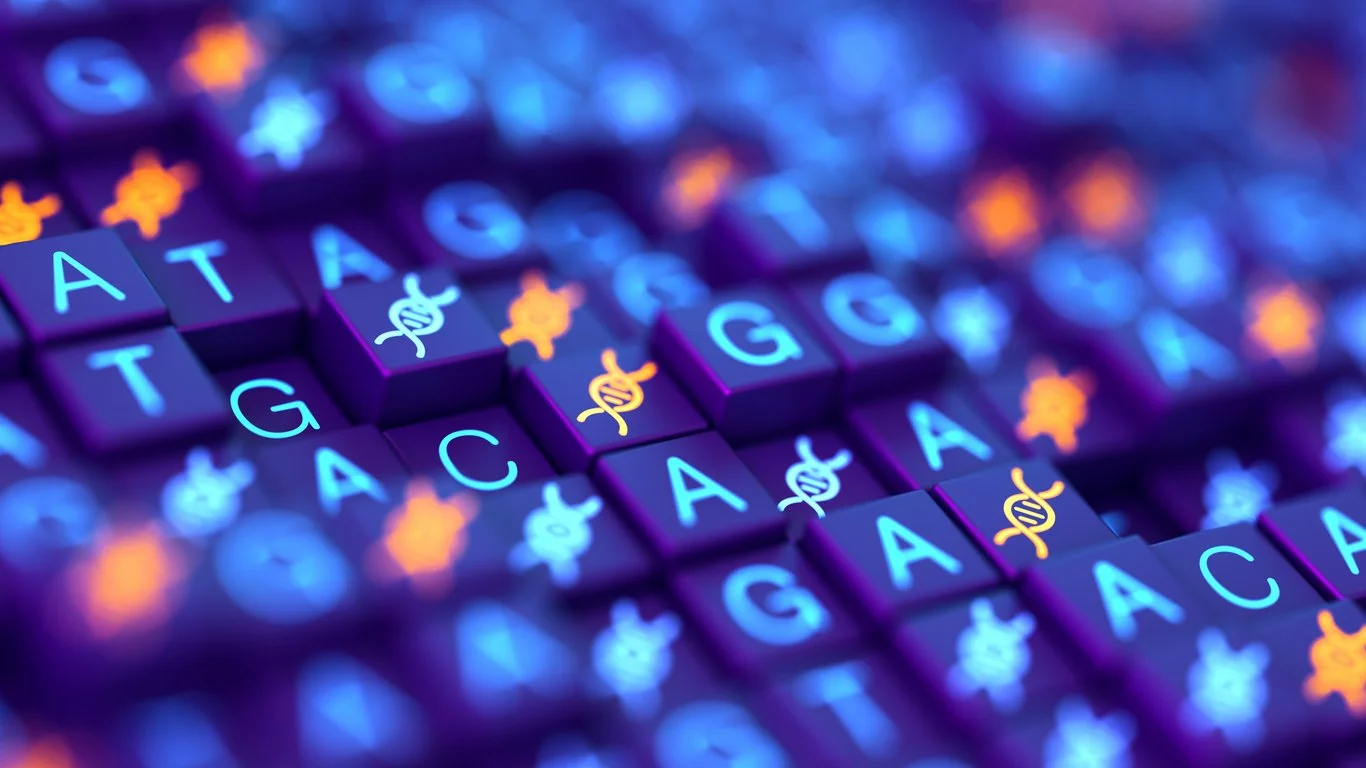Bioinformatics
AGRF’s bioinformatics team turns complex data into insights. From genomics to other ‘omics’ and clinical datasets, we help unlock the story behind the numbers.
Covering a wide range of expertise in programming, statistics and biology, the team are capable of offering any commonly requested bioinformatics service, including Custom Analysis options and operates clinically accredited pipelines to ensure reliable, high-quality results you can trust.
Bioinformatics Summary of Services
Differential Expression Analysis
Short Read Sequencing: such as mRNA, Total RNA, small RNA
Long Read Sequencing
Proteomics
Methylation: such as PacBio, Arrays, Enzymatic MethylSeq
Single cell RNA
Variant Detection
Somatic SR - WGS/WES ISO17025
ISO17025 Research uses, SNV, SV, CNV, Annotation, mitochondrial, HLA - SR and LGR
Pharmacogenomic
Polygenic Risk Score analysis
Non-human variant calling
Sanger Primer Designs
Clinically (ISO15189) Accredited Services
Germline/hereditary SR: ISO15189 clinical accreditation
Somatic SR: TSO500 ISO15189, gene fusions
Genomic Characterisation and Population Genomics / Structure
Large genome and transcriptome assembly
Plasmid/small genome assembly
Genome annotation
Transcript isoform assembly
CRISPR-Cas9 & transgenic changes
Advanced Genomic Services: such as Hi-C, Micro-C, Omni-C, CUT&RUN, ATAC-seq
Allegro
Population Genomics: Genotyping by Sequencing (GBS) -> SNP identification; reference-free genotyping
Microbiome Analysis
Gene targeting for taxonomic annotation using 16S, ITS, CO1, or custom primers on request
Taxonomic and functional characterisation using MetaWGS
Metagenome contig assemblies through Long-Read
Functional screening
Differential abundance analysis
Overall community structure analysis (alpha/beta diversity)
Bioinformatics Guide:
-
Understand how your samples respond under different conditions. We quantify RNA expression to reveal which genes are active, suppressed, or differentially expressed, giving you insights into biological pathways, disease mechanisms, and treatment effects.
Perfect for understanding cellular responses, validating targets, or exploring functional genomics.
Bulk RNA-seq: Quantify and classify bulk RNA content by aligning overlapping short reads to the genome using STAR, and count reads aligned to known genes. Compare differential expression between treatment groups using edgeR, following robust statistical methods to deliver meaningful results and generate publication ready data.
Related data: Illumina Stranded mRNA, Illumina Total RNA, Small RNA (link to each)
Single cell RNA-seq: Single-cell RNA sequencing uncovers cellular diversity and rare populations by profiling individual cell gene expression and enabling differential expression analysis between cell communities and conditions. This service transforms biological samples into high-resolution data that advances research across diverse biological applications.
Related data: 10X, HIVE, Parse Biosciences
Proteomics: Quantify relative protein expression levels using highly sensitive proximity extension assays across a variety of curated Olink panels containing biologically meaningful protein targets. Compare treatment groups using popular statistical methods to detect significant population level differences in expression for both high and low abundance proteins.
Related data: Olink HT, Olink Reveal, Olink Target
Methylation: Differential methylation profiling can reveal meaningful insights into epigenetic mechanisms linked to your phenotypes of interest. Our analysis solutions utilise powerful statistical methods to investigate these patterns through annotated CpG sites (using the EPIC and Methylation Screening Arrays), and across the whole genome (EM-Seq, PacBio 5mC).
Related data: Infinium arrays, Enzymatic Whole Genome Methyl-Seq, RRBS, PacBio
-
Ideal for researchers studying genetic disease, cancer, plant or animal breeding, or evolutionary change.
Discover the genetic differences that drive traits, disease, or performance. Our variant detection services identify SNPs, insertions, deletions, and other mutations across your samples — helping you pinpoint key changes that influence biology or health.
Somatic SR - WGS/WES ISO17025
ISO17025 Research uses, SNV, SV, CNV, Annotation, mitochondrial, HLA - SR and LGR
Pharmacogenomic
Polygenic Risk Score analysis
Non-human variant calling
Sanger Primer Designs
Clinically (ISO15189) accredited services:
Germline/hereditary SR - ISO15189 clinical accreditation
Somatic SR - TSO500 ISO15189, gene fusions
-
At AGRF, we help researchers understand the genetic makeup of individuals and populations. Genomic characterisation involves mapping and analysing the DNA of organisms to reveal their unique genetic features. Population genomic structure examines how genetic variation is distributed across groups, populations, or species, providing insights into ancestry, diversity, and evolution. Together, these analyses support research in fields such as agriculture, conservation, health, and personalised medicine.
Large genome and transcriptome assembly
Plasmid/small genome assembly
Genome annotation
Transcript isoform assembly
CRISPR-Cas9 & transgenic changes
Advanced Genomic Services: such as Hi-C, Micro-C, Omni-C, CUT&RUN, ATAC-seq
Allegro - Allegro uses a capture based method to amplify genomic regions for variant calling. Analysis method genotypes specific markers.
Population Genomics - Genotyping by Sequencing (GBS) -> SNP identification; reference-free genotyping. SNP discovery to characterise populations. Analysis method often used to characterise species with low reference genomes and as a low cost alternative to WGS in agricultural projects.
-
At AGRF, we help researchers explore the communities of microorganisms that live in and around us. Microbiome bioinformatics involves analysing complex microbial data to understand which microbes are present, how they interact, and how they influence health, disease, or the environment. These insights can guide research in medicine, agriculture, ecology, and beyond, unlocking the hidden impact of microbes on our world.
Gene targeting for taxonomic annotation using 16S, ITS, CO1, or custom primers on request
Taxonomic and functional characterisation using MetaWGS
Metagenome contig assemblies through Long-Read
Functional screening
Differential abundance analysis
Overall community structure analysis (alpha/beta diversity)
Contact our specialist team today
Our team is always available to talk you through your next project or any questions you might have - get in touch today to arrange a consultation.












AGRF is a proud partner of The Australian Research Council Industrial Transformation Research Hub (ARC ITRH) for Advanced Prawn Breeding, which is applying cutting-edge genetic and genomic selection methodologies in the most advanced and industry-transformative improvement program for any prawn/shrimp species globally.